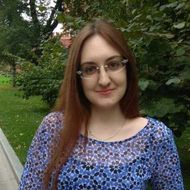PhD Research Seminar: Machine learning on graphs, intention and process mining for game analysis
First talk: Fusion of Text and Graph Information for Machine Learning Problems on Graphs
Speaker: Dmitrii Kiselev, second-year PhD student, Faculty of Computer Science
Nowadays, increased attention is drawn towards Network Representation Learning, a technique that maps nodes of a network into vectors of a low-dimensional embedding space. Thus constructed graph embedding aims to preserve nodes similarity and other specific network properties. The embedding vectors can later be used for downstream machine learning problems, such as node classification, link prediction and graph visualization. Naturally, some networks have text information associated with them. For instance, in a citation network, each node is a scientific paper associated with its abstract or title; in a social network, all users might be viewed as nodes of a network and posts of each user as textual attributes. This work studies how combining existing methods of text and graph embeddings can increase accuracy on the downstream tasks and propose modifications to popular architectures to better capture textual information in graph embedding and fusion frameworks.
Second talk: Hierarchical Intention and Process Model for Game Analysis
Speaker: Konstantin Nikitin, third-year PhD student, Faculty of Computer Science
Gamification is a common practice that however leads to more complex and difficult processes to model. Goal-oriented process mining and intention mining in particular seems to be efficient for such task. However, while existing methods are can help identify intentions within the educational games, they are too abstract in the context of behaviour analysis. Activity-oriented process modelling techniques, on the contrary, are precise, but tend to discover so-called "spaghetti-like" models. So we propose a formalism that combines both perspectives to model unstructured processes in a hierarchical way. At the seminar, three levels of developing formalism will be presented alongside with their properties and signification. Finally we will discuss restrictions on input data and whether all types of processes (especially game processes) could be modeled using this method.
Киселёв Дмитрий Андреевич
Научно-учебная лаборатория моделей и методов вычислительной прагматики: Стажер-исследователь
Никитин Константин Иванович



